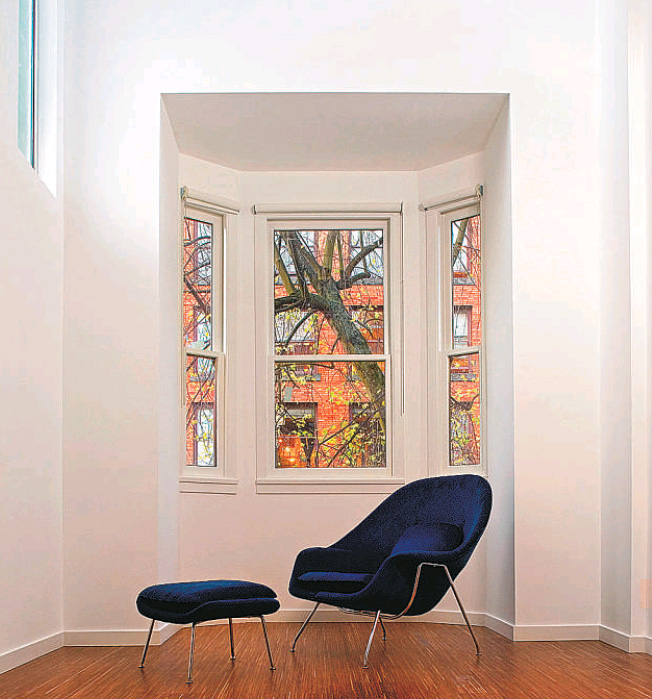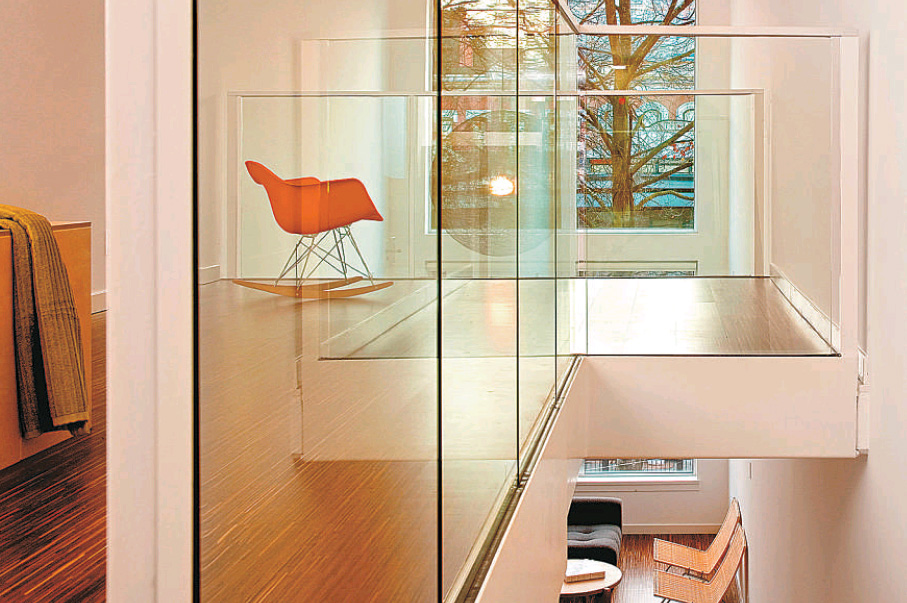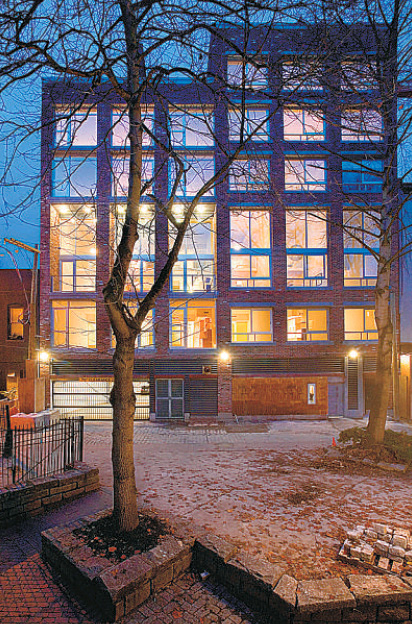The Sun hears from a panel of experts who share their predictions about the Lower Mainland’s property market in the months ahead
Sun
As long as we keep getting immigrants into Canada, and the wealth keeps coming in, and the talent keeps coming in — this is heaven on earth — they will pay anything for it. Patsy Hui
My sense is [prices] haven’t stabilized yet.
They have further to fall. You need to get change in sales before you get change in prices. Sales always lead prices.
Tsur Somerville
Most people in the homebuilding industry here do consider that housing is too expensive in Greater Vancouver.
And one of the benefits, perhaps, of this correction is that prices are coming down. Michael Audain
Q: On prices, do you think they will stabilize any time soon, have you seen any signs of that?
Michael Audain: I think the first thing to deal with is volume. The volume of sales was as low as I can remember it in about 27 years for October, November, December and January. The market was almost frozen. But we’ve noted in [the past month] the volume does seem to be picking up.
I think the price stabilization comes later. You have to have volume for a while, and to get volume people need to get their prices down to a level that the consumer thinks that they’re a bit of a bargain. There is a lack of confidence in the market and a belief that prices will continue to fall.
But I’m fairly confident — based on other market corrections I’ve lived through and traded through in the Greater Vancouver area — that by the third-quarter we’ll see price stabilization, if not price increases.
Patsy Hui: I don’t think anybody in this world — and I’m talking about the world this time because it’s a worldwide thing — can really tell you what’s going to happen and when it’s going to stabilize. I’d like to tell buyers that it’s already doing so, but I honestly always tell my clients to purchase. There’s only two criteria: First, that you can afford the payments for the next five years; and also that you love the place.
Just trade up, trade down, but stay in the market — 25 years later it’s your retirement income. We actually encourage this as a great time to buy. Interest rates this morning, I have a client telling me he got 2.4 per cent. Why wouldn’t you buy?
Tsur Somerville: My sense is they haven’t stabilized yet. They have further to fall. You need to get change in sales before you get change in prices. Sales always lead prices.
We saw in this market that sales started dropping before prices started dropping, and [a recovery] is going to, in a way, work the same process. The early indications suggest the decline has slowed dramatically and sales are much closer to having sort of bottomed out, but that’s not the same as turning around.
MA: Another indication of a direction of the public interest is that our sales offices have been very busy over the last two or three weeks.
I have no difficulty in advising close friends and family to buy a home now, with interest rates down at levels that I would never have thought believable and with the price corrections that have already happened in the market. So I strongly believe that if someone is to buy a home, in five years from now it’s going to look like a very smart decision. If they’re not prepared to live in that condo or single-family home for five years, then they should not be buying. That’s what I tell them.
…….
Q: Are people easily getting pre-approved for mortgages? That is one of the concerns being raised about whether, in fact, credit is moving, banks are lending.
PH: The only hiccup is [in] commercial [real estate]. For commercial, [banks] are starting to really, really make it very difficult.
MA: We’re finding that people who have employment have no trouble getting mortgages from banks and credit unions. We’re very fortunate in Vancouver, because I don’t think that is the case in the United States.
TS: When you’re looking on the investment side, from what I hear and what I’ve been told, the banks are much stricter on providing funds for people who are not going to be owner-occupiers. So there’s a piece that was an important piece of driving the market in the [past]. [Investment property] is a market where the financing is really hard to get. The investment side is completely dried up.
……..
Q: To see higher volumes of sales this spring, what do you see as the key factor that will bring buyers back?
MA: I think you can only freeze the market, as I mentioned before, for so long. And then there is a need for people to secure accommodation. And also, lets face it, people who have participated in the market over time have done very well. They have found, undoubtedly, their home has been their best investment.
Q: So you’re only losing if you look back at nine months ago when you didn’t sell your house?
TS: People do that. We did some research on what people’s reference point was for deciding on losses, and the reference point doesn’t necessarily turn out to be the price they purchased, but what was the maximum they could have made, which at some level doesn’t make any sense at all. But there’s that psychology out there, and I think it shows up particularly when you get these turning points.
MA: People like me who have been around for quite a long time in Greater Vancouver have experienced incredible appreciation. So I can tell people that I own a house in West Vancouver that has appreciated 17-fold since I originally bought it. So if I’ve had that experience, no wonder I’m going to advise a lot of young people to get into a home ownership position.
Q: What’s the likelihood of that kind of market growth being repeated?
MA: Oh, I believe in the future of British Columbia and most particularly Vancouver, very much so. That’s why in recent years our market has appreciated as much, because we have attracted a lot of people to our shores. That has driven the price of housing to quite high levels.
The other thing that has occurred is that many people have bought residences in Vancouver just like we would buy summer cottages.
Q: Since you mention that the investment market is struggling most, what does that mean for prices?
TS: The investment piece is still very small in the overall market. It’s highly concentrated in certain product types — downtown condos, certain suburban high-rise buildings. Overall, it’s not a big story. Going forward, we don’t really understand what is going to happen to those properties.
People will buy and sell them depending on what city is attractive or not attractive, or what city they want to be in. I don’t think we really know what’s going to happen to those condos over time.
A lot of local investors bought condos, and some of those people are going to be squeezed, and we don’t know what’s going to happen with them. You’ve got people with pre-sales that are under water. In segments of the market, there are still a lot of questions.
MA: There are different types of investors. There are people who you might call investors, but who only occupy the home part of the year. It’s not their principal residence. There are other people who buy condominiums to rent on a long-term basis, which is wonderful because it’s creating rental housing. And then there are those who buy to flip the property. I think those are more the “froth”, so to speak. They will get hurt in a market correction.
Q: Patsy, what do you see on the ground in terms of buying for occupation or investment?
PH: I’ve never dealt with flippers. I always advise my clients: Own your own home.
Everybody witnessed how Vancouver has changed. I came in 1970, and [it has] changed, believe me, and it will yet again. Because I think we were born in 1986 after Expo ended. We are like a toddler right now. And I think by this time next year, the world will really get to know us after 2010.
To make a long story short, basically, this is a baby as far as an international city is concerned. It sounds totally unaffordable for Canadian people, which was the same thing when I first went into the market.
I was a new immigrant in 1973. I’d only been here for 21/2 years. I ended up with my own 8,000-square-foot lot, six-year-old home, two-piece ensuite, gleaming hardwood floors. That’s [the] immigrants’ dream. As long as we keep getting immigrants into Canada, and the wealth keeps coming in, and the talent keeps coming in . . . this is heaven on earth. They will pay anything for it.
……..
Q: Tsur, what’s the expectations around the Olympics?
TS: I think anything that’s good about the Olympics, in terms of the economy, has happened already. I think what the Olympics has brought us is a certain kind of infrastructure that we might not have gotten already — the convention centre, a gateway project, the RAV line. That’s where long-term benefits are going to be.
I think what Patsy’s talking about about immigrants is really important in that part of what gives Vancouver, in the long run, a certain amount of strength is that Canada’s an attractive destination to come to . . . there are a limited number of places that people are going to go. We’ve got this basic growth. Even if we have a downturn, there is a base to help us grow out of it more quickly than might be the case otherwise.
MA: I think one of the interesting things about this market correction is that there has been relatively little overbuilding compared to other corrections I remember — such as what occurred in the early 1980s and the late 1990s.
This time, the banks have insisted on pre-sales, and as a consequence, right now we have a very low inventory of completed, unsold condominiums. Of course, people are now stopping building. Housing starts are down about 50 per cent from a year ago, and I think quite a few of my colleagues will take a bit of a holiday from building until the market strengthens again.
……….
Q: Is there anything governments, the provincial government in particular, can do vis a vis making housing a little more affordable?
MA: Yes, the provincial government needs to help first-time buyers. We find even a couple with full-time jobs, in many cases, haven’t been able to save for a down payment. So I think there’s a role for the government. We [once] had a home-purchase grant for first-time buyers — it was an incentive to help them get into their first home. I think that’s a role, and I would recommend that really as a way right now to increase employment in the province. You are going to be surprised at how low housing starts are going to be in the next few months. There’s no quicker way of firing up an economy than getting the housing sector going, much quicker than getting public works going.
PH: It’s not just homeowners we’re dealing with. We should be really looking into helping people, local people, invest right back [into rental properties].
Think again, what tax incentive is there to the homeowner to provide more affordable rental places so young people can actually save more money?
TS: I think the easiest thing to do on affordability is get rid of the property transfer tax for first-time buyers. Your cost of capital for that particular piece is really high. And getting rid of it for first-time buyers would not be a major hit on the provincial treasury. But that’s a short-term, one-time fix. How do we move forward? Doing things to streamline the regulatory process to make it easier to do certain types of development are going to have long-run effects, but that’s not a quick solution. Accelerate that process, remove the uncertainty. The clearer it’s going to be for developers, the less of their own equity they’re going to have to put up to go through that process, the quicker that process happens. It doesn’t mean you get rid of regulations, but streamlining that process is something that will have a long-term benefit.
On the other hand, we have poor renters who are in really difficult straits when you think of their ability to live reasonably close to work and have a reasonable percentage of their income going to housing. Given the land prices we have in this city, probably a more aggressive social housing policy is really going to be important.
If you look at other really land-constrained environments, such as Hong Kong and Singapore, they have very aggressive social housing programs. It’s not clear to me that the number of people who are truly priced out of the market — as opposed to being delayed for two years, or instead of owning a condo in downtown Vancouver end up in Burnaby — that doesn’t strike me as the acute issue.
MA: I’d just like to point out that most people in the homebuilding industry here do consider that housing is too expensive in Greater Vancouver. And one of the benefits, perhaps, of this correction is that prices are coming down. Also, the costs of new construction will come down. Construction costs are coming down, our finance costs — the interest we pay the banks is coming down — and also land prices will eventually come down a bit.
But one thing isn’t coming down, and that is the imposts we pay to municipalities. For instance, in Richmond we’re building wood-frame apartments for young people, first-time buyers. We’re paying over $28,000 per unit to the City of Richmond. In south Surrey, we’re paying over $25,000 per unit to the city for development-cost charges, again for homes we’re trying to sell to first-time buyers.
This is really counter to the whole idea of making housing more affordable.
© Copyright (c) The Vancouver Sun














